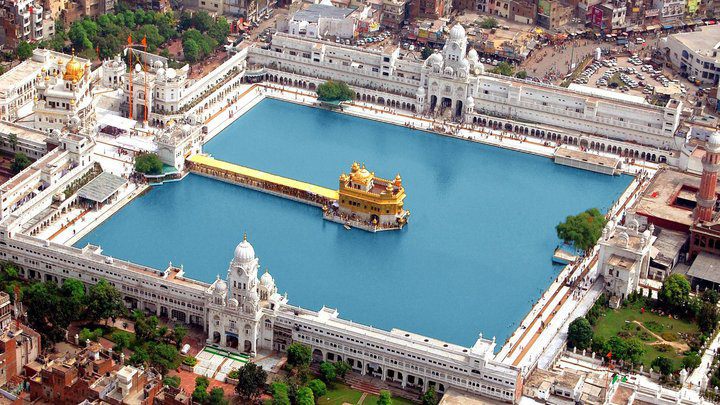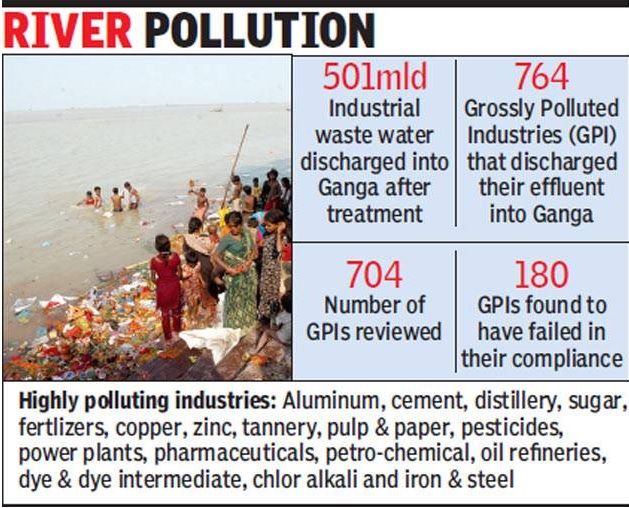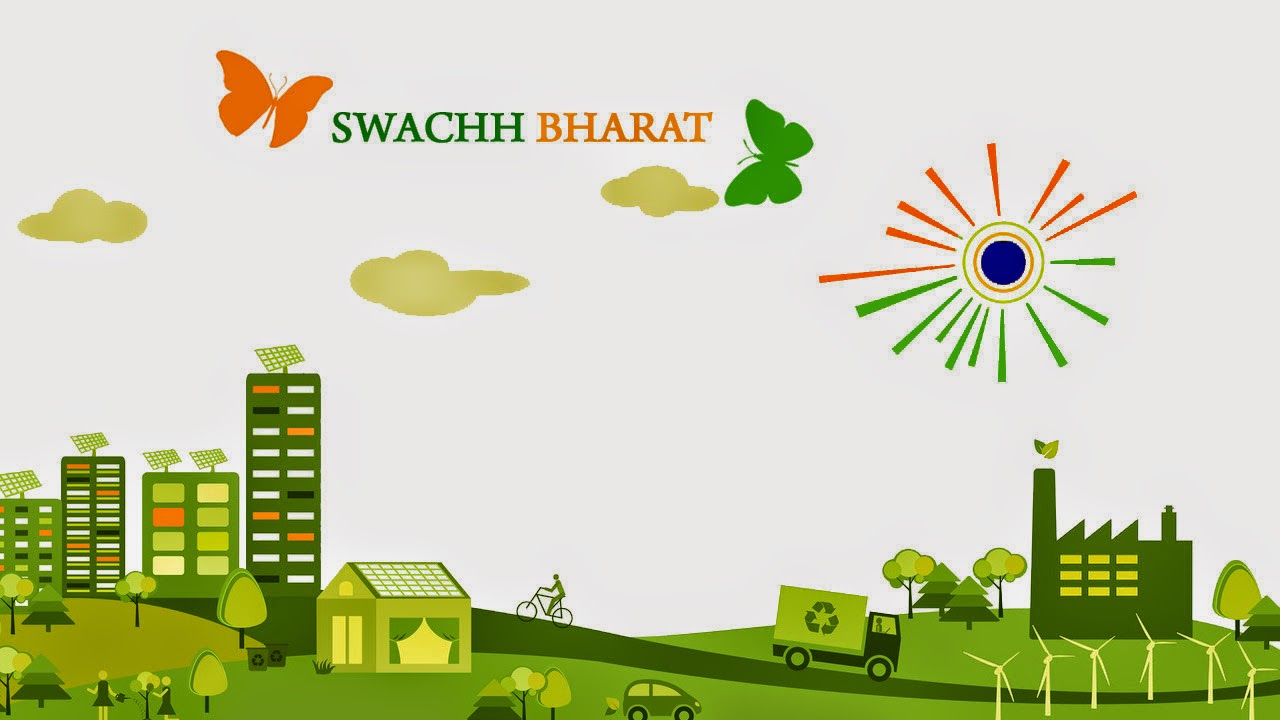A version of this Post was published on Andhra Cultural Portal on October 14, 2014

“Grohwth, grohwth, vee need grohwth, increase our grohwth, vee must have grohwth”—And what will you do with all that growth, eat it?
The fact remains that while modern infrastructure development is important and educational advancement is good, they must not be done at the expense of destroying the environment, pillaging nature, and most importantly, losing culture.
Culture should improve, culture should progress, and culture should innovate—but all should be done in a way that makes timeless values relevant in a changing modern context. Just as we have Sanatana Dharma (Timeless Dharma) and Yuga Dharma (Dharma as per the Yuga or Era), so too should core aspects of our Samskruthi be eternal while others adaptable.
Why “Debelopment” above all is not a Strategy for Success
China has made a great many strides over the past 30 years—clearly well ahead of India on the development front. But it has also paid a heavy price, not merely in the widespread decline in air quality due to coal power plants (India is not far behind here), but also in the depletion and degradation of its water sources. Indeed, so disastrous has the decline in the PRC’s environmental quality been that the Chinese themselves have been calling it “low quality growth”.


The rapid push for rapid and lop-sided urbanization and unaccountable industrialization has resulted in a slow motion catastrophe that has not only impacted the quality of the land and the quality of life, but life itself. Many pictures are too horrifying and tragic to show (particularly the human toll), but the ongoing health disaster due to cadmium rice and other such gifts of globalization should be cause for pause.
Is the massive deluge of humanity into rotting cities and under-piped settlements a humane let alone dharmic existence for its denizens? Are smart cities the solution for every citizen? Wouldn’t balanced development seek to enhance life in the village, town, and city alike rather than simply constructing gigantic megalopolises conceived as smart but ending as slum? But why take the word of an Indian on China, when a Chinese person himself speaks on the topic:
Due to increase in the “Landless and jobless”, the vibrant traditional culture of China is dying in favor of the supposed greener pastures of materialism and hedonism (India not too far behind here either). Let me clarify. Preserving rural lifestyles does not mean promoting the primitive. Villages and even smaller towns can connect to the modern world without disconnecting from the holistic and symbiotic lifestyles they frequently offer, as opposed to the current parasitic model of our vastly mushrooming urban agglomerations. But why should the word “farmer” be perceived as a four letter word? There is great dignity in the life of the kisan, for civilized life is dependent on him and his hardwork. Rather than be viewed with contemptuous eyes, the agriculturalist should be thanked for making city life possible at all.
What’s more it is industrial life and commerce that is driving not only the consumption of resources but the pollution of our natural resources, even our sacred rivers.
Living in harmony with the land is not the hallmark of the barbarian but the callsign of the civilized, for the highest form of civilization is not material but spiritual. Understanding and recognizing that all life is interconnected, and that we too have duties to Mother Earth and her other children, is essential.

It is this ahankar (false ego) mentioned previously that creates the sick desire in men to dominate others and all other life. Man does not have dominion over the Earth, how could he? Did he create it? Is his “conquest” of it so secure that a simple frown from Bhoomidevi could not overthrow him like many ants upon a hill?
No, my brothers and sisters, the human being is merely a tenant, a guest in this vast resort of Life, here to improve, and even perfect himself/herself, not through artifice and robotics, but will to restrain the senses. The earth is merely a life-estate at best, and there are restrictions on what can or cannot be done before it is passed on to the next generation, and even to its Ultimate Owner.
It is svaartha (selfishness) that ever-present evil, that root of all evil that drives man mad in the desire to conquer other people and other things, rather than conquer himself (the first and noblest form of conquest). It is for this reason Mahatma Gandhi said the world has enough for every person’s need, not every person’s greed. He even decried the Industrial model of the West, saying

Recent estimates have concluded that for the developing world to consume and live like the developed, we would need 3 and ½ Earths. In fact, “urbanisation is accompanied by unprecedented consumption of natural resources”
Cities occupy 3% of the earth’s land surface, house half of the human population, use 75% of the resources and account for 2/3rd of all energy and greenhouse gas emissions. If developing countries emulate the model of developed countries, a resource base as large as four planet earths would be necessary to support their growth.
Despite ongoing efforts to tarnish his name and legacy, looks like on this count, Gandhiji was right after all.
It is the fundamental conceit and hubris of man to attempt to rule over the Earth as slavemaster rather than protect and safeguard it as steward.
The unsentimental and pragmatic Chanakya himself stipulated that “The root of Happiness was Dharma (Righteousness), the root of Dharma was Wealth, the root of Wealth was Power, and the root of Power was Conquest of the Senses”:
Sukhasya moolam dharmam, dharmasya moolam artham, arthasya moolam rajyam, rajasya moolam indriya vijayam.
Thus the key to our prosperity and happiness comes not from greed, but from good. Greed is not Good–how could it be? Goodness is good, virtue is good, self-restraint and consideration for others is good. Dharma is good. Therefore, it is incumbent on humanity to channel its energies within rather than be pulled by its appetites without.
Scene from the Movie “Clueless”

This is not merely spiritual/ritual mumbo-jumbo from “backward” India, but increasingly the view of Nobel-prize winning Western Economists themselves.
(For those ebullient and excitable arrivistes to America (AP boasts many of them) who proclaim the greatness of all things USA, some food for thought about its economic model. One, Two, Three.)
It is not enough to merely say India must safeguard its interests by competing with China. India should learn many things from China, but it should also learn from its mistakes (which they are experts at hiding or rationalizing—unlike our people who love airing out dirty laundry to outsiders). The fact remains, “certain rules of living are to be observed if we want to ensure sustainability and peace.”
Lifestyle & Development must be in harmony with our Land & Values

Development must be in harmony with the land. As I’ve noted previously, the tragedy in Uttarakhand exemplified the importance of respecting the sanctity of the land and not turning everything into a sprawling tourist trap.
Unrestrained, shoddy infrastructure projects exacerbated the problem in the tragic flood of 2013. Thus, as the geographic focus of AP’s development plan shifts back to our ancestral towns and cities on the coast—let us keep this ideal in mind.
It also means not turning each and every town into a new urban conglomeration. Specifically, we must find a way to balance life at different levels—village, town, and city. We must be mindful to encourage prosperity at all levels. Some of our sarcastic saviors of society have posited that village life has retained many of the worst elements of casteism, and mass urbanization is the remedy.–But to get rid of the bathwater, do we throw out the baby as well? No, the answer therefore, is to combat casteism while preserving the village.
After all, agriculture is the backbone of civilization. Only when there is surplus crop is urban society even possible. Yet urban society today is driven by the big business urge to profit unethically from everything, whether its farming or mining. The Gali family of Bellary is the perfect example of the type of crony capitalism that should not be acceptable and certainly not respectable. The natural wealth and inheritance of all Indians was mercilessly and selfishly mined and sold to India’s neighbor to the North—without national security considerations. Does it make sense to sell strategic resources like Iron and Copper to a strategic competitor that actually has more of it than India does? (Does it make sense to buy telecom equipment from the same point of origin for that matter?—“IT superpower” indeed…)
What was done in Bellary was not entrepreneurship or responsible commerce, but national plunder. Commerce with Conscience should be a prime directive for modern India and society in general. Business as usual should no longer be acceptable. Becoming rich should not be the main criterion for respectability—and how one becomes rich should also matter.
As Seemandhra walks the road of bifurcation full of uncertainty, a number of questions have been raised about the path forward. In our previous pieces we extolled the hard work of the current Chief Minister in his first innings in office. However, as is commonly known, this also came at a price. The plight of farmers not only in Andhra Pradesh and Telangana, but Maharashtra as well is well known and well documented. Faulty developmental paradigms have ignored the health and human tolls.
Having effectively put all their eggs in one basket, the people of new Andhra Pradesh state are now questioning the old models for development and economic growth. Given the continuing farmer suicides in not only Andhra but the rest of India as well, there are serious questions about whether the current model of development is ultimately sustainable and beneficial to all citizens.
Thus, an opening has now presented itself for a new paradigm: Dharmic Development.
To date, growth and wealth has been an either-or proposition. Poverty or Riches, Backwardness or Development, Communism or Capitalism, Agriculture or IT (we can also add Communalism or Pseudo-Secularism to that list–but that is another matter…). Perhaps it is time for our people to take a page out of the book of Andhra’s own Nagarjuna. No, not this Nagarjuna, but this one. The legendary Buddhist monk hailed from our region and presented the philosophy of Madhyamika, or the middle path that ultimately originated from the Buddha himself. This third way, in between ascetism/deprivation and sensuousness/greed, if you will, offers a new approach to development–a Dharmic one.
Regular readers are familiar with the excellent article composed by Krishnarjun gaaru called Dharmanomics. This post attempts to move forward the foundation he laid with it and I want to thank him for giving his generous encouragement in this endeavor.
Read now the wisdom of Maharishi Veda Vyasa, who wrote the following at the end of the Mahabharata (Svargarohanika Parva, S.5):
Oorddhva baahurviromyesha na kashchit shrnothi me
Dharmaath artthasha kaamascha kim na sevyati?
I raise my hands up [in frustration] and say “The way to wealth and love is through Dharma—why doesn’t anybody listen?!”
The Dharma of Development
“business number nahin, business log hai” (business is not about numbers (i.e. profit/growth), it’s about people)
What is Development and what is its purpose?
Too often our newly minted college and MBA grads rote cite assorted theories on GDP and manufacturing capacity without understanding the underlying definition and purpose of development. Development does not mean merely commercial development of a country.
Development also means national development. It is the ability of a country to provide for its citizens’ material, economic, political, and social needs through the harnessing of nature for technological purposes to responsibly meet the challenges of modernity.
Thus, at its core, development is about meeting the needs of a society’s citizenry. Our current era of technological advancement has necessitated not only financial and infrastructural capital, but human capital. For far too long the assumption has existed that farming and rural life is somehow the driver of poverty. Lack of resources to meet one’s needs is the cause for poverty. When far too much emphasis is placed on the needs of only one factor of production, the others suffer. That is the current state of affairs in a global economy that is staring at the precipice.
Land, labor, capital, and entrepreneurship are all the textbook factors of production for productive economic activity (and of course, the over emphasized “growth”). What is the value of each of these? Land provides terrain for agriculture, mining, infrastructure, and housing. Labor (over-emphasized by Marx and Engels) provides the ability to harness and manufacture. Capital, alternatively specie (i.e. gold, silver) is a means of exchange acceptable to others allowing for investing in productive enterprises and storing value. And lastly, entrepreneurship, which is the expertise and drive in conceiving, building, and managing organizations and endeavors (whether commercial or societal) that productively and usefully apply the previous three. But all four of these factors are finite. While new ways can be devised to productively apply or leverage them (also a function of entrepreneurship), total productivity, and more importantly, total utility to society will eventually level off. As such, unceasing growth is simply not possible and will be increasingly diminishing in returns. So how can it be the basis of value and the basis of the modern concept of wealth? How can it be the basis for all economic decision-making?

It is the height of folly and adharma that India is now joining the bandwagon of countries like China and the Gulf states to rely on African agricultural land for Agro-business. When India has the second largest supply of Arable land on the Earth, how on Earth can its business interests join the Adharmic rush to have Africans supply food to the rest of the world? A continent whose countries such as Somalia have become synonymous with famine and starvation cannot possibly be expected to supply food to wealthier nations when its citizens have vast numbers of empty bellies to fill. Proponents argue that it is a more efficient use of resources (presumably they come from the same school as this “genius”). But before citing David Ricardo and comparative advantage, MBA automatons would be well-advised to study Adam Smith–no, not his Wealth of Nations, but The Theory of Moral Sentiments (yes, he was a moral philosopher as well–imagine that!). There is no moral or ethical or dharmic basis for countries like India and China to lay claim to agricultural lands that would better serve an African.
It is imperative that business and political leaders see not only what is profitable or efficient–but also what is ethical. Even Bentham spoke of “the greatest good of the greatest number” in his theory of Utilitarianism. Does it make any sense to deprive Africans of arable land so that India and China can allocate theirs to manufacturing and IT sweatshops?! That is the importance of Dharmanomics and Dharmic Development.
Dharmic Development
- “Dharmanomics is about blending natural economy, natural justice to the modern situation”
- “Food economy is the root of prosperity.”
- ” balancing food economy and high-end manufacturing is critical for prosperity and to defend that prosperity from external threats.”
- “farmland shouldn’t become an instrument of investment for profit. Only professional farmer have to be allowed ownership of farmland and the community.”
- “The Panchayat has to certify him as farmer ”
- “Harmony of self and environment is the essence of Dharma and to see the possibility of such harmony in the economy is Dharmanomics”
Dharmic Development Corollaries:
- State shall adhere to Dharmic mandates of Raksha, Palana, and Yogakshema of the land and its people
- Sanctity of Spiritual places must be observed/preserved
- Development must be Sustainable in nature with fair, productive, and ecologically harmonious distribution of resources
- Emphasis on renewables/caution with permeables
- Any drastic changes to or transformations of ecologies only at utmost to dire need
- Decentralized development should be premised on responsible & preferably decentralized ownership
- Agricultural and Manufacturing Cooperatives for economies of scale
- Life cycle planning-Corps have responsibility to not only plan end user marketing, but also end user goods disposal/recycling
- Prioritization of agriculture and the needs of agriculturalists
- Arable land should be should be used primarily for agriculture
- Individual farms the building blocks, not big business
- Organic food & Community Ownership seed banks to preserve bio-diversity
- Emphasis on societal/national interest and the family unit
- Due consideration for weaker and vulnerable sections of society: i.e. pregnant women, children, the elderly, infirm, and disabled.
- Corporations are not citizens…citizens are citizens
- Prioritization of the needs of children in marriages
- Protections against exploitation of human beings, whether through means of force, finance, or enterprise
- Humane treatment of animals, especially livestock, whether for products or byproducts, in line with Bharatiya Dharma
- Balance of rights and duties. Duties come first.
Dharmic Development Corollaries Explanation:
1.State shall adhere to Dharmic mandates of Raksha, Palana, and Yogakshema of the land and its people
The Arthashastra emphasized Raksha (protection from external threat), Palana (internal law and order) and Yogakshema (welfare of the land and people) as the three obligations of Government. Thus, rather than brainless parroting of vacuous nostrums such as “reform”, “globalization”, “economic liberty”, public officials must bear these in mind when instituting and implementing policy. India’s telecom blundering is a textbook example of violating all three. Government is not subordinate to business, business is subordinate to government and the Yogakshema of the citizenry.
2.Sanctity of Spiritual places must be observed/preserved
 I know some long time supporters may not like it (but healthy disagreement and civil discussion is good anyway), but I have to differ with the current push to turn spiritual places like Tirupati and Prayag into IT hubs and Smart cities). Opponents may argue that Tirumala is not Tirupati and Prayag is not what is called “Allahabad”, but the reality is the spiritual suburb itself is dependent on the greater urban area for supplies, workers, and atmosphere.
I know some long time supporters may not like it (but healthy disagreement and civil discussion is good anyway), but I have to differ with the current push to turn spiritual places like Tirupati and Prayag into IT hubs and Smart cities). Opponents may argue that Tirumala is not Tirupati and Prayag is not what is called “Allahabad”, but the reality is the spiritual suburb itself is dependent on the greater urban area for supplies, workers, and atmosphere.

If the sanctity of Harmandir Sahib (Sikh Golden Temple) can be preserved cooperatively by even an Amritsar Domino’s pizza reportedly refusing to serve alcohol within 1km of the sansthan, then there is no reason not to expect Tirupati or Greater Prayag’s sanctity to not be similarly respected. After all, pilgrims themselves stay in Guest Houses that are very frequently outside the Devasthanam, etc, should they not go with spirituality in mind rather than pubs and clubs?
3.Development must be Sustainable in nature with fair, productive, and ecologically harmonious distribution of resources
Resources such as water and other essential commodities for life are part of the common wealth. After security from external threat and internal disturbances are taken care of, priority shall be on ensuring fair and reasonable distribution to the public. In particular, treated waste water (grey water) should got to industrial use. Priority for clean water should be for personal consumption, then agriculture, and then only industrial use. Furthermore, the citizenry and the business community should be educated on how not to waste water and how to harvest it.
Next, there should be an emphasis on renewables & caution with permeables. Accidents with nuclear power in Japan (as well as gas in the US) are well known, resulting in countries like Germany preventing the construction of new plants and the phasing out of old ones. As such, while there may be a basic need for strategic reasons, India should proceed with utmost caution with respect to emphasizing nuclear power and mining of its required resources. While renewables such as solar, wind, and hydro come with their own host of issues, responsible use of them (coupled with R&D) may offer better alternatives.
Third, any drastic changes to or transformations of ecologies should only be at utmost to dire need. China has come under the microscope for its penchant towards giant dams (such as the Three Gorges). Hydrologists have established that smaller dams are better for ecosystems, displace fewer people, and better integrate with the land.
4.Decentralized development should be premised on responsible & preferably decentralized ownership
No state more bitterly learned the lesson of putting all its eggs in one basket than Andhra Pradesh. Investors and common middle class citizens alike focused on the development of Hyderabad as synonymous with the development of AP. The net result was not only neglect of other cities, but also the tragic and ongoing agrarian crisis that continues to plague farmers in both Telugu states. Thus, decentralized development is imperative. Furthermore, this should be premised on the notion of decentralized ownership.
Economies of scale has long been the sacred incantation of international economics. Joint Ventures, Corporate mergers and unrestricted FDI are pointed to as panaceas for society and “necessary reform” without proper evaluation or discussion. While productive and fair business should be encouraged, anti-trust measures must not only be firmly in place but firmly applied. Even the most famous among them can get eroded through disuse, carelessness, and misguided zeitgeist.
Agricultural cooperatives should therefore be encouraged as should artisan and manufacturing guilds like Ancient India’s Srenis. This will provide the necessary economies of scale (through collaboration) while ensuring that profits are fairly distributed among farmers themselves, rather than corporate fat cats.
R&D and innovation intensive strategic industries can of course continue with the corporate model, but with appropriate government oversight and accountability. Particularly for industries involving the use of harmful or polluting resources, Life cycle planning should be mandated by government. Byproducts and waste cannot simply be discharged untreated into rivers. Moreover, corporations have a responsibility to not only plan end user marketing, but also end user goods disposal/recycling. Corporate interest should not be allowed to harm national interest, in the name of “profits” & “economic efficiency”.
5.Prioritization of agriculture and the needs of agriculturalists
Arable land should be used primarily for agriculture. As already touched on, counties like India should be more than capable of supplying their own food needs. Rather than having farmers mis-educated into emphasizing cash crops and questionable chemicals, organic farming should be encouraged instead. India instituted impressive land reform at Independence. As a result, rather than stumbling back to feudal, share-cropping farming under big business, the individual farmer should be able to stand on his own two feet as the building block of society.
Organic food & Community Owned seed banks should be encouraged and secured to further strengthen his hand while preserving the health of society. Rather than attempt to manipulate nature, the precepts of Dharma should mandate that man respect it, and follow its natural processes in animal husbandry and horticulture.
6.Emphasis on the family unit and societal/national interest
Due consideration for weaker and vulnerable sections of society: i.e. pregnant women, children, the elderly, infirm, and disabled should be pursued. While India already has legislation to protect these segments of society, law alone without promotion of societal interest in our culture and every day behavior cannot be relied upon. While India is woefully under-policed, who in turn are under-equipped (as 26/11 tragically demonstrated), it has nevertheless managed to have lower crime rates in general.
To ensure that they are lower still, this emphasis of society and Dharma must be promoted at all levels. After all, the common Dharma was not only for the proverbial Brahmins (scholars, teachers) and Kshatriyas (leaders, administrators), but Vaisyas (merchants) and Sudras (workers) as well. Modern day equivalents of Vaisyas, whether from Infosys or Bharti also have responsibilities to society. Thus business must be pursued in harmony with the common Dharma–which means billionaire businessmen whether born a Murthy or a Mittal must be expected to ply their profitable trade in harmony with the national interest–rather than gainsay and undermine it. And political leaders, whether Rajput or a (D.) Raja cannot give in to graft, and must uphold the national interest.
Corporations are not citizens…citizens are citizens. Much ink has been spilled on this already, but as discussed immediately above, business interests cannot be allowed to stomp all over the rights of the average citizen. While the opinions of business leaders must be solicited to ensure their needs are taken into account while pursuing national interest, they cannot be permitted to outweigh the voices of the national citizenry. In a democracy, the ultimate sovereign is not the money-minded peddler, but the people.
Finally, for development to properly take place, the needs of children, elderly parents and stable marriages must be prioritized above individual caprice. Legal protections are in place to ensure individual rights are preserved, but national development can only truly take place if responsible adults act in the interest of the next generation (as well as the previous one) to ensure they grow up in happy, healthy homes to become productive and emotionally healthy citizens of the future. Though there are certainly exceptions to the rule, the ultimate purpose of marriage is to form a stable, healthy environment for the raising of children. Aged parents as part of the Indian joint family have historically facilitated this process. While elders surely should pass on the torch to the children once they retire (as Kings should abdicate at the right time), our young modern couples should be expected to look after their mothers and fathers, not dump them off in a retirement home or ship them off to Vrindavan. Our laws and civil society should reflect this through incentives–but respectable elite and middle class society and culture should also frown upon the selfish men and women who care only about themselves and their supposedly “progressive” lifestyles.
It also means worker hours should be reasonable and work life balance promoted to prevent exploitation. Corporations should not seek to squeeze every last drop of productivity out of their workers, but motivate them through a good work environment. A happy worker is a productive worker & strong families make happy workers & healthy societies.
7.Protections against exploitation of human beings, whether through means of force, finance, or enterprise
The 2008 crisis is now a well-known facet of economic debate. Less discussed is the private debt crisis plaguing the average person in many countries. India must not replicate the same mistakes. Exploitation takes place through many means, whether socio-religious or socio-economic, thus it is imperative that India’s development not mortgage the futures of its labor force by driving to them graduate with the equivalent of mortgages on the backs of new graduates.
Furthermore, corporations, social enterprises and non-profits must also be checked from taken advantage of their role. Here is a classic example of a good idea with good intentions, gone wrong due to corporate greed. Finance and capital must be harnessed to support society rather than exploit it through usury and debt. Therefore consumer protection must be in place to prevent the illiterate or unsophisticated from being taken advantage of. The freedom of contract must be balanced by laws against exploitation and unjust enrichment. Just as a pirate has not right to argue that his plunder came from “entrepreneurship”, neither can a corporate buccaneer with respect to employees and citizens.
8.Humane treatment of animals, especially livestock, whether for products or byproducts, in line with Bharatiya Dharma
Whether its the living conditions of animals, the cruel methods used to acquire their products, or the manipulation of their nature, it is imperative that science and profit be tempered by the ethics of Dharma. The production of milk and meat should not be dictated by bottom lines but by the natural capacity of the animal for providing, the humanity of collecting, and the tempering of the human rapacity for consuming. It is not merely a spiritual stretch-goal but a matter of human health as well.
While vegetarianism is the ideal, it should not and cannot be legally mandated. At the same time the traditions of Bharatiya culture have spanned ages, and should be respected. This means respect for all animal life, and special protection for the Gau/Avu/Cow . The native species must be preserved as far as humanly possibly rather than employing unethical means to tamper with their nature and population.Most of all, adharmic means to extract their milk in a way that causes them or their calves distress should not be employed. At the same time, this must be balanced by ensuring that meandering members of the bovine species aren’t plodding down main roads of modern cities or their various flyovers.
9.Balance of rights and duties. Duties come first.
While the modern liberal state is founded upon Individual rights, individuals must also be mindful of their duties to society. As such, law and cultural expectations must ensure that individuals not engage in crass materialism that jeopardizes national interest and society itself. This means that while individual rights should be protected, the individual must be educated to think about society and his or her dharma to it. Far too many people are still obsessed with caste privileges, but who remembers societal duty? Without duty there can be no privilege, and without society there can be no rights. Rather than get people to obsess about their caste, whatever their caste, let them be concerned about what obligations their privilege and modern wealth brings.
In sum, development must be conducted in a way that safeguards the preservation of Saamanya Dharma–the Common Dharma irrespective of varna/jati/occupation.
How to Implement
In a recent post, we wrote on how the well known adage Cleanliness is Next to Godliness must be our watch-word for our habits and neighborhoods, but it should also be the foundation for our approach to development. Economic and even strategic needs should not be pursued without due consideration for the impact on the heath and pavitrata of the environment and its people. More than just corporate social responsibility, it means economic and national responsibility, which axiomatically necessitate not destructive development, but dharmic development. So how to implement all this?
Contrary to many of the alarmists, the objective of this proposal is not to turn the clock back 500 or 5000 years. Rather, the purpose is to take inspiration from our own native philosophies to fill the vacuum left behind by a society with only the steel frame of law sans cultural coherence or ethical mooring.
One of our greatest and yet most pragmatic political thinkers was a dasiputra (i.e. son of a servant woman). Yet Vidura was the most astute politician of his era and second in temporal wisdom only to Lord Krishna himself. Read now what this brilliant minister of Kings advised:
He that desires the highest success in all matters connected with worldly profit, should from the very beginning practise virtue [Dharma], for true profit is never separated from Heaven
He that followeth virtue, profit, and desire in proper seasons, obtaineth hereafter, a combination of all three.
Thus wealth and profit should never descend to lobha (greed). However, only an ethical culture and dharmic education can enlighten businessmen and businesswomen to think this way. Our business schools and colleges must train students to balance their quest for profit with virtue/dharma/obligation to society. This lays the foundation for ensuring a grassroots commitment to Dharmic Development.
Second, laws should be reviewed to establish a regime that keeps both business and government accountable in commerce, infrastructure, and general policy.
Kautilya provided principles for Fair Trade to ensure that business was conducted dharmically by merchants. Examples include injunctions against the creation of artificial scarcity and prevention of hoarding against the public interest. As we previously wrote in the foundational piece on “Cleanliness”, nuisance to the neighbors/public/and society in general should be punished. Industry cannot expect to continue its irresponsible behavior of build and dump. Furthermore, laws to impose punishment for cruelty to animals should also be examined and implemented where applicable. More importantly, however, was the emphasis on agriculture.
He wrote that “Cultivable land is better than mines because mines fill only the treasury while agricultural production fills both the treasury and the storehouses“. Thus the ruler “had to ensure that agriculture was protected from harassment“. Our politicians must therefore evaluate the needs of the farmer and reorient the top-down IT economy so that it starts from agriculture at the bottom before moving up to smart cities.
Above all, is the creation of a culture of responsibility and dharma. Law and stern law-enforcement can only do so much; it is the culture of a society that drives responsible, ethical, and dharmic development. Therefore, all sections of society must be educated on the common societal Acara and the common societal Dharma. That will create the ethical citizenry needed to properly develop India and the ranks from which moral leaders can be drawn.
Some may argue that many of Kautilya’s laws were antiquated, but the point is not to implement his laws or teachings verbatim. Rather, the purpose is to infuse his spirit of pragmatic Dharma while discarding whatever may be deemed casteist or illiberal. Much as the religious aspects of Dharma change from age to age, so too do the practical aspects of Rajdharma.
One of the most common, even cliche, concerns about Dharma is “caste” (misnomer for varna/jati). Indeed, it is a matter of Debate even within the various Indic traditions. As such, the implementation of Dharmic Development and Dharmanomics should be under the precepts of Saamaanya Dharma, i.e. “The Common Dharma”. It is for this reason we have emphasized the importance of Bharatiya Dharma rather than Dharma as interpreted by a single religion, because Dharma transcends the narrow definition applied to religion (i.e. 1 book, 1 way, etc). In fact, religion more correctly translates to Panth, thereby demonstrating that Dharma transcends religion, and why it is asserted that Indic Civilization is the home of Dharmic civilization.
Naysayers may argue by stating that this is just a ploy to “implement a brahminical conspiracy”, but this is patently motivated falsehood, as Sikhism, Buddhism, and Jainism all propound the importance and benefits of the common Dharma, only interpret it without caste. It is for this reason that this article is not called “Hindu Development” and ostensibly why the foundational article by Krishnarjun gaaru is not called “Hindunomics”.
Saamaanya Dharma in action means living our principles, which, more than any green technology could ever hope to do, create a society that lives frugally, selflessly, and prosperously, and all without ravaging the Earth. But rather than take our word for it, see what current research has to say on the topic.
“India, which has ranked first in food sustainability in every Greendex, came out far ahead again, thanks to its culturally dictated eating habits. Nearly one in four Indians is a vegetarian, and those who aren’t tend to avoid beef, the most environmentally damaging meat. Indians have reduced the amount of imported food they eat and increased their consumption of locally produced, homegrown, and organic foods.“
Rebuilding Andhra…and India
Swacch Bharat is a great step forward for creating a clean, livable, and modern India. But the foundation for this vision will come not from a campaign for civic sense, a change in habits, or even sufficient infrastructure, but rather, from a fundamental shift in our philosophical outlook.
Colonialism left what was once the richest and most developed country & civilization of the world in ruins. Worst of all, was the mental and cultural colonialism perpetrated that left naive Indians thinking they were always economically backward and culturally inferior–and that a foreign “savior” had to routinely present himself or herself to save India from superstition,caste and now (the modern reincarnation of this) “communalism”.
Rather than looking to the Middle east, Europe, or even China (we have seen how all these regions have fared–especially since 2008), perhaps it is time to look within for inspiration. It is time for a paradigm shift. Rather than continue to argue ourselves hoarse about the virtues of capitalism this, humanity that, or Confucian harmony there, it is time for the Indic concept of Dharmic Development to present itself as the middle way.
India was once the legendary land of not only philosophers and damsels, but righteous men and untold riches…with the right philosophy & guiding principles, it can be so again.
Oorddhva baahurviromyesha na kashchit shrnothi me
Dharmaath artthasha kaamascha kim na sevyati?
I raise my hands up and say “The way to wealth and love is through Dharma—why doesn’t anybody listen?!”
https://www.youtube.com/watch?v=6SWUha42F30
References:
- http://www.cnbc.com/id/101382610
- http://www.niticentral.com/2014/09/21/indias-economic-might-rests-villages-238957.html
- http://www.thehindu.com/todays-paper/tp-national/tp-andhrapradesh/guntur-district-a-role-model-for-development/article152219.ece
- http://timesofindia.indiatimes.com/home/stoi/all-that-matters/Kedarnath-to-Kashmir-the-tragedy-of-development/articleshow/42413181.cms
- http://www.thehindu.com/news/national/tamil-nadu/rainwater-harvesting-in-vogue-during-chozha-dynasty/article6422107.ece?utm_source=Most%20Popular&utm_medium=Tamil%20Nadu&utm_campaign=Widget%20Promo
- indianexpress.com/article/india/india-others/holy-cow-desi-cattle-shows-dip-in-numbers-foreign-variety-up/
- www.mining.com/web/infographic-a-forecast-of-when-well-run-out-of-each-metal/
- http://www.niticentral.com/2014/08/29/cleaning-ganga-an-environmental-cultural-need-236845.html
- http://www.dnaindia.com/india/report-by-trashing-the-gadgil-report-recommendations-did-we-just-kill-the-western-ghats-2014640
- theguardian.com/global-development/gallery/2013/jun/28/india-seed-corporate-grain-in-pictures#/?picture=411332809&index=9 …
- theguardian.com/global-development/2014/mar/18/india-rice-warrior-living-seed-bank?commentpage=1 …
- http://deshgujarat.com/2014/08/09/the-city-of-surat-starts-supplying-treated-waste-water-to-industries/
- http://www.filmsforaction.org/watch/bhutan_gross_national_happiness_and_sustainable_development/#.U9s80LZvgKk.twitter
- http://www.thehindu.com/news/cities/bangalore/prehistoric-sites-lost-to-rapid-urbanisation/article5973534.ece?ref=sliderNews
- www.hindustantimes.com/india-news/desecration-of-environment-has-made-uttarakhand-prone-to-floods-landslides/article1-1245075.aspx
- http://indianexpress.com/article/opinion/columns/before-the-light-turns-green/ – .Utdql9K1ZbU
- http://www.ipsnews.net/2014/03/kerala-throttling-golden-goose/
- http://www.ipsnews.net/2006/12/india-diseases-follow-environmental-degradation/
- http://qz.com/158815/chinas-so-bad-at-water-conservation-that-it-had-to-launch-the-most-impressive-water-pipeline-project-ever-built/
- Rangarajan, L.N.. Kautilya. Arthashastra. New Delhi: Penguin. p. 90, 91, 336
- Vidura Niti. p.150
- Dhammapada
- http://www.dlshq.org/religions/mahabharata.htm
- http://creative.sulekha.com/evolution-of-dharma-2-of-3_312794_blog













![[Reprint Post] Are We a Serious People?](https://indicportal.org/wp-content/uploads/2015/08/41K-QxL25KL._SY344_BO1204203200_-150x150.jpg)

